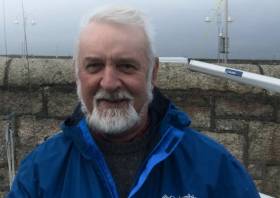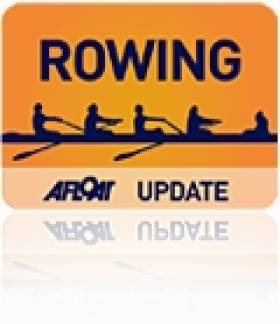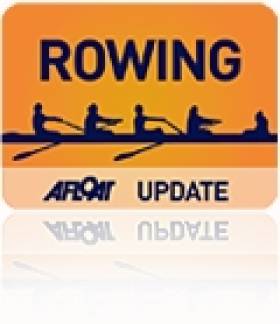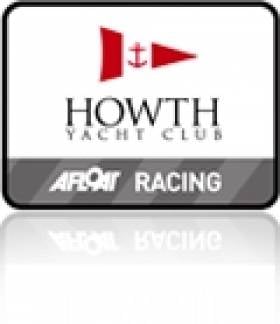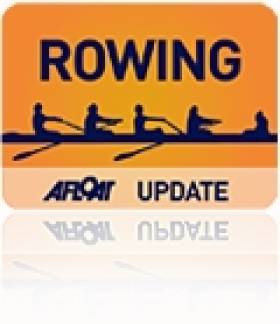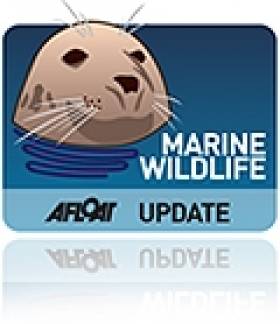Displaying items by tag: course
Outboard Engine Course At INSS Next Saturday
Next Saturday 5 October sees the Irish National Sailing & Powerboat School in Dun Laoghaire host an outboard engine course designed and presented by Brian Hughes.
With 48 years of experience in the industry — most notably and recently with Dalkey outboard engine specialists Killen Marine — Hughes will bring his wealth of knowledge and know-how to the day-long course at the INSS’s West Pier base.
Hughes says: “I feel quite strongly that a lot of boat owners really have very little knowledge about quite simple and basic aspects of their outboard (and to a certain extent inboards) so hopefully this is something I can help rectify … and keep me out of mischief while retired!”
The course fee is €89 and bookings can be made at 01 284 4195. For more visit INSS.ie
Lough Rinn Rowing and Canoeing Course Opens Today
#ROWING: The new Lough Rinn rowing and canoeing facility in County Leitrim will be officially opened tomorrow (Friday). The development is backed by Leitrim Tourism and Leitrim County Council. The opening will be attended by Michael Ring TD, Minister of State at the Department of Transport, Tourism and Sport with Special Responsibility for Tourism and Sport.
The facility has a 2,000 metre, eight-lane rowing course. It is within easy reach of Dublin, Belfast and Galway and has already attracted the attention of many of the clubs in Ireland, and in particular in Northern Ireland, where there is no facility of this nature.
New Rowing Course to be Built by Fermanagh and Hungarian Firms
#RowingCourse: Deane Public Works from Fermanagh will be awarded the main construction contract for the new rowing course at Lough Rynn in County Leitrim. The specialist work of design, supply and installation of the lanes will sub-contracted to Polaritas, a company from Budapest in Hungary. According to Leitrim County Council, the company have worked on the rowing courses for the 2008 and 2012 Olympic Games and will work on the installation of the rowing course for the Olympic Games in Rio de Janeiro in 2016.
The design/build contract for Lough Rynn involves the design, supply and installation of an eight-lane Albano Rowing Course to meet FISA (Fédération Internationale des Sociétés d’Aviron) Standards. The course will also be adjustable to meet canoe sprint competition rules of the International Canoe Federation.
The course may be finished by the end of this year.
Youth Powerboat Courses At Howth Yacht Club In May
#HowthYC - Howth Yacht Club will soon be hosting an ISA-sanctioned powerboating course for beginner youths in mid-May ahead of a certification course at the end of the month.
The 'introduction to powerboat' course runs on the weekend of 18-19 May and is open to all club members aged between 14 and 20.
Members who complete this course would be at an advantage going on to the national powerboat qualification course on the weekend of 25-26 May, which is open for club members aged 16 to 20.
Both courses commence at 9.30am each day.
Application forms are available from the Howth Yacht Club website and must be returned by Thursday 16 May.
Six-Lane Rowing Course Planned for Leitrim
County Leitrim has received a welcome boost with the announcement that a recent round of Government funding will enable the development of an international standard rowing facility on Lough Rinn, near Mohill in the south of the county.
The funding which was provided by the Department of Transport, Tourism and Sport as part of an overall €6 million investment across four projects will enable Leitrim County Council in conjunction with Carrick on Shannon Rowing Club develop a 2,000 metre, six lane facility which will be capable of hosting national and international events as well as acting as a training base for international teams in advance of major competitions.
The development of the facility on Lough Rinn is already underway through Leitrim County Council and the facility will become available by April of next year. Once completed the Rowing Facility will be run under the supervision of the Carrick on Shannon Rowing club which is the oldest rowing club in Ireland its foundation dating back to 1836.
Commenting on the potential of the new rowing facility, Sinead McDermott, Leitrim Tourism said, “Today’s announcement really is a milestone for Leitrim, the development of this facility will not only raise the profile of Leitrim in a sporting sense but will also have a considerable impact on the local economy and tourism industry. By its very location, this new facility will be extremely accessible for rowing clubs and teams from Northern Ireland, Dublin and the UK.”
Anthony Dooley, President of Rowing Ireland echoed this view saying, ''Rowing Ireland believe that the development of Lough Rinn will be a major boost to the development of rowing in the region and will attract rowing people across all age groups and classes both within Ireland and from abroad, having a multi-lane course in such a beautiful and picturesque location will be major draw.”
Lough Rinn, a 162 hectares lake which is 3,000 meters in length is ideally suited as a rowing facility and the development project will see the creation of a six lane facility through the placement of pontoons alongside retractable rowing equipment. There will also be a number of spectator points developed with a walkway planned around the entire lake over the next number of years.
Outlining the impact the rowing facility will have on the sport, Tony Keane, President of Carrick on Shannon Rowing Club said, “We are thrilled with the awarding of the funding and with the development of the rowing facility. We already have strong links with Clubs across Ireland, Northern Ireland and England and would hope that this facility would enable us to host landmark rowing competitions which would not only increase interest in the sport but also provide a welcome boost to Leitrim.”
Rowers and spectators who visit Leitrim in the future will be well catered for with the four star Lough Rynn Castle Hotel on the shore of the Lake itself and the vibrant town of Carrick on Shannon less then fifteen minutes drive.
Summer Whale Watching Courses on Cape Clear
The Irish Whale and Dolphin Group (IWDG) is running a new series of its popular whale watching courses on Cape Clear in Co Cork this summer.
The first weekend course from 8-10 July 2011 caters for adults keen to learn more about whales and dolphins in Irish waters and how to observe, record and identify them. It will feature a mixture of workshops and field trips, including cliff and boat-based whale watches.
Admission for this course is €70 for IWDG members (€90 for non-members). Please note that this fee does not cover transport to Cape Clear, food or accomodation, or any boat trips. As the itinerary will be weather-dependant, some flexibility will be required.
Places are also limited to 20 per course on a first-come-first-served basis. Booking requires a non-refundable deposits of €25 to be paid by cheque or postal order to the IWDG.
For bookings and enquiries contact IWDG sighting co-ordinator Pádraig Whooley at [email protected] or 023 883 8761.



























